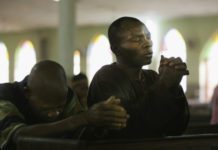Listen to this BosNewsLife News report via BosNewsLife and Vatican Radio:
(In a series of reports, Hungary-based BosNewsLife follows what is now Europe’s largest refugee crisis since World War Two. Many Christians fleeing conflict zones are also among them. New Europe covers news developments in the (former) Communist nations of Europe and the Soviet Union impacting the Church and/or compassionate professionals).
By Stefan J. Bos, Chief International Correspondent BosNewsLife reporting from Hungarian-Serbian border area

ÁSOTTHALOM, HUNGARY (BosNewsLife)– Macedonia has seen fighting among migrants at a train station as they rush to reach Serbia and from there Hungary, a European Union member state. Refugees from Syria, Afghanistan, Iraq and other nations are racing to reach Hungary before it finishes building a fence to keep them out.
Though Hungarian authorities claim genuine asylum seekers will still be accepted, aid workers fear most of them will not be allowed to enter Hungary.
More than 120.OOO migrants, including persecuted Christians, are now known to have entered Hungary illegally this year alone. Many of them have met Ibolya Fazekas who says she will soon turn 80. Her house in the border village of Ássothalom is located near what is effectively one of the first small farms of the European Union. Fazekas, who lost her husband this year, is desperate.
“My husband passed away of various diseases,” she said, holding back tears. “And now…Almost everyday I see the refugees coming and going. I don’t how the fence will stop them,” Fazekas added.
RUSHING PROJECT
It is one of the reasons why the government says the anti-migration fence has to be completed by August 31.
That’s why Hungary is now building a four-meter (12 feet) high barbed wire anti-migration fence along its 175-kilometer (109 miles) long border with Serbia. Ironically it was a mayor of the far right Jobbik party who came up with the idea.
László Torocskai, the mayor of Ássothalom, said initially there was “political resistance to this idea to build an anti-migration fence, especially from the European Union.” But now, he claimed, “the whole EU wants to protect itself against illegal migrants so the fence the green light.”
Migrants from Asia, Africa and war-torn nations Syria, Afghanistan and Iraq are now rushing to reach Hungary. Once here, they are in the EU’s border less Schengen Zone allowing them to travel more easily to wealthier Western nations.
Many manage to enter Hungary just before another section of the fence is completed.
LUXURY LIFE?
“Here it’s better, a good luxury life,” said a refugee. “There are more facilities available here…People are good,” added the young man.
Among the refugees are also Christians. Take a young man who identifies himself only as Evangelist Calvin from Nigeria, who spoke to Vatican Radio at the main train station of the nearby town of Szeged. He arrived there after a dangerous journey, partly through the notorious Balkans route. “We saw some people who died on the way. Some people tried to kill them. Some people died at sea, “ he recalled.
As a Christian and former militant he says he was forced to flee Nigeria where Islamic militants have killed many believers. “Well I am a preacher so I have a problem with some gang members I used to belong before. So I dropped that. I go to church and I denounced the militant things and other things. So they are looking for me,” he explained.
He says he wants to stay in Hungary, but trusts God to show him what to do next.
Hungarian volunteers have already given him and others water and food. They say they want to show compassion to refugees in Hungary, which itself has a troubled history.
Many Hungarians fled the country in 1956 when Russian tanks crushed the Hungarian Revolution against Soviet domination.
ONGOING PROJECT
Yet Hungary’s right-wing Prime Minister Viktor Orbán wants to complete the anti-migration fence by August 31, saying his nation can no longer cope with the influx, though most migrants want to go to the West.
That worries the United Nations refugee agency UNHCR in Budapest. Its representative Babar Baloch met Vatican Radio at Budapest’s crowded Keleti, or East, train station where volunteers provide aid to refugees.
“You can not solve a refugee crisis by building fences or walls,” he said, adding that many had already tried to cross the dangerous Mediterranean Sea. “These people are desperate, they need help. You can not turn your back on these people.”
Yet back in Ássothalom there isn’t any sign that soldiers will halt the construction of the fence that critics have called a new Iron Curtain.








